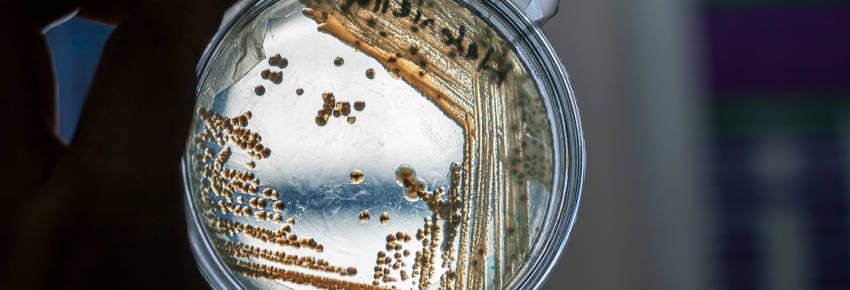
Understanding the Importance of Gut Health
Our gut microbiome plays a crucial role in our overall health and well-being. A healthy gut biome is essential for proper digestion, immune function, and even mental health. The balance of bacteria in our digestive system affects how we absorb nutrients, regulate inflammation, and maintain a strong immune system.
Research has shown that an imbalance of gut bacteria, also known as dysbiosis, can lead to various health issues including obesity, metabolic disorders, autoimmune diseases, and even mental health conditions such as anxiety and depression. Therefore, it's vital to maintain a balanced and diverse gut microbiome through dietary choices and lifestyle habits.
Prebiotics Versus Probiotics
Probiotics and prebiotics are both necessary for a healthy gut. They include fermented foods like yogurt, kimchi, and kefir. While probiotics directly introduce beneficial bacteria into the gut, prebiotics provide the necessary environment for these beneficial bacteria to thrive.
Prebiotics are types of fiber that are not digested in the small intestine and instead travel to the colon, where they are fermented to provide sustenance for your beneficial bacteria. They feed the probiotics and include foods with fiber, like soybeans, oats, and garlic. By consuming prebiotic-rich foods, you create an ideal environment for probiotic growth, enhancing the overall gut health.
The good bacteria, or probiotics, need food to live on. Prebiotics nourish the probiotics, allowing them to multiply and strengthen the gut lining. This symbiotic relationship between prebiotics and probiotics is crucial for maintaining a healthy gut biome.
Probiotic Foods to Eat for a Healthy Gut Biome
Greek Yogurt: Rich in probiotics, Greek yogurt contains Lactobacillus acidophilus and Bifidobacterium bifidum. These beneficial bacteria help with lactose digestion and support the immune system.
Kimchi: This Korean fermented vegetable dish is packed with probiotics from lactic acid bacteria. Kimchi aids in digestion and supports the gut-brain axis.
Kefir: A fermented milk drink containing multiple strains of probiotics, kefir helps with lactose intolerance and supports gut health.
Kombucha: This fermented tea drink contains SCOBY (Symbiotic Culture of Bacteria and Yeast), which contributes to a balanced gut microbiome.
Sauerkraut: Fermented cabbage rich in probiotics, sauerkraut supports the immune system and aids in digestion.
Tempeh: This fermented soybean product contains probiotics and prebiotics, making it an excellent source of beneficial bacteria.
Prebiotic Foods to Eat for a Healthy Gut Biome
Artichokes: High inulin, a type of prebiotic fiber, artichokes feed beneficial bacteria in the gut, promoting a healthy gut biome.
Dragon Fruit: Contains pectin, a soluble fiber that acts as a prebiotic, supporting the growth of beneficial gut bacteria.
Garlic: While often used for its flavor, garlic also contains prebiotic fibers that feed beneficial bacteria in the gut.
Mushrooms: Some varieties of mushrooms, particularly shitake and reishi, contain prebiotic compounds that support gut health.
Oats: Rich in beta-glucans, oats act as prebiotics, feeding beneficial bacteria in the gut.
Soybeans: Contain raffinose, a complex sugar that acts as a prebiotic, supporting the growth of beneficial gut bacteria.
How Diet Affects Intestinal Bacteria
The composition of a person's diet significantly impacts the intestinal bacteria. Processed foods high in sugar and unhealthy fats tend to disrupt the balance of gut bacteria, leading to dysbiosis. On the other hand, a diet rich in whole foods, fruits, vegetables, and whole grains promotes a healthy gut biome.
Additionally, the timing of meals can influence gut bacteria. Eating breakfast regularly has been associated with a healthier gut microbiome compared to skipping breakfast. Similarly, consuming meals at regular intervals throughout the day can help maintain a balanced gut ecosystem.
Other Lifestyle Factors Affecting Gut Health
While diet plays a significant role in maintaining a healthy gut biome, other lifestyle factors also contribute to gut health:
- Stress management: Chronic stress can negatively impact gut health by altering the balance of gut bacteria.
- Exercise: Regular physical activity promotes the growth of beneficial gut bacteria.
- Sleep: Adequate sleep is essential for maintaining a healthy gut microbiome.
- Hydration: Proper hydration helps in the digestion process and maintains gut motility.
Conclusion
It has been said that the best time to plant a tree was twenty years ago, and the second-best time is today. Likewise, the best time to begin eating healthy foods for a healthy gut biome is today. By incorporating probiotic and prebiotic-rich foods into your diet and adopting a balanced lifestyle, you can promote a thriving gut microbiome and reap the numerous benefits it provides for your overall health and well-being.
Remember, maintaining a healthy gut biome is an ongoing process. Be patient and consistent with your efforts, and you'll start to notice improvements in your energy levels, digestion, and overall sense of well-being.
© 2022 - 2026 ifecal.com, All Rights Reserved. Written and curated by Wellness Advisor Eduardo Contee Contact, Privacy Policy and Disclosures, XML Sitemap.